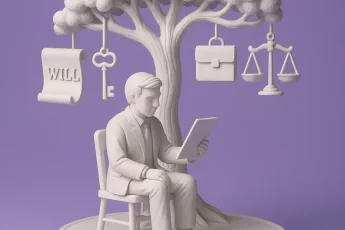What is Probate?
Probate is an important process and places considerable responsibility on the Executor to get it right. Midwinters Partner, Mark Lynham (mark.lynham@midwinters.co.uk ), explains more:
Probate is the name given to the process by which the estate of a person who has died is administered by the appropriate person, usually the Executor named in someone’s Will or, if there is no Will, an Administrator who is appointed by law.
The process is commonly divided into two stages: the Pre-Grant stage and the Post-Grant stage.
In the Pre-Grant stage, the Executor has to carry out all of the work required to being able to apply to the Probate Registry for a Grant of Probate, which is the formal legal document which gives the Executor the authority to then take the Post-Grant steps.
This will involve establishing the extent of the deceased’s estate and includes obtaining valuations for the deceased’s property, contacting all financial institutions with which the deceased held assets (e.g. banks, building societies, investment holders, etc) to obtain date of death balances, valuing any shares held and finding out if there are any insurance payments due to the estate.
It also involves finding out if there are any debts owed by the estate in addition to funeral costs, for example any credit card debts, outstanding loans or money owed to utility companies.
The Executor also has to make sure that any issues with the Will are addressed and that the Beneficiaries named in the Will are identified.
Once all of the above is known, the Executor will also need to determine whether there is any Inheritance Tax to pay since an initial payment is required before a Grant of Probate can be issued.
At this point, the Executor can make an application for a Grant of Probate by submitting a Legal Statement confirming the details of the estate together with the original Will, if there is one.
Once the Grant has been issued, the Executor can then proceed to the Post-Grant stage and we have produced a further article explaining the next steps (“I have a Grant of Probate – what do I do now?”).
The above is a very brief summary of what is involved in the Pre-Grant stage and the actual amount of work required can be substantial. The responsibilities of being an Executor are onerous and involve duties to the Beneficiaries, the Probate Registry, HMRC and any creditors to the estate and it is not a role to take on lightly. If you are in any doubt about what to do, you should seek help and advice from a solicitor.
At Midwinters, we can offer an obligation-free initial appointment. Please call us on 01242 514 674 to discuss further.





